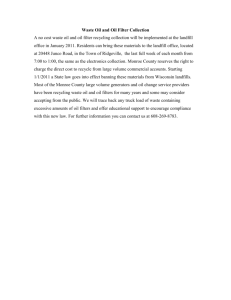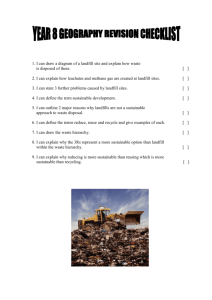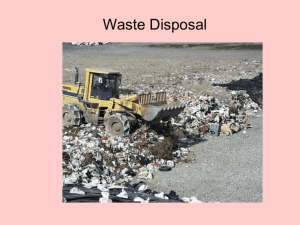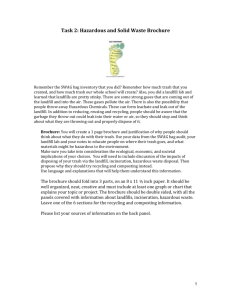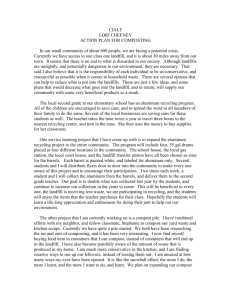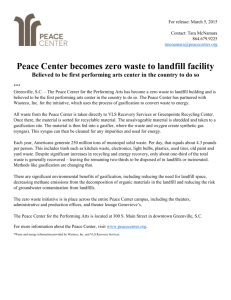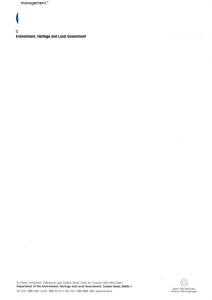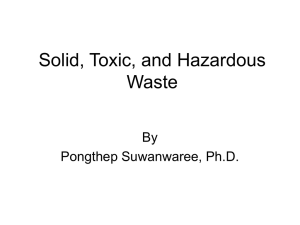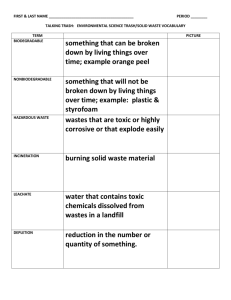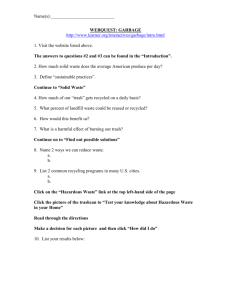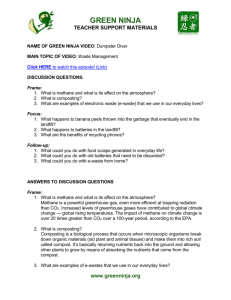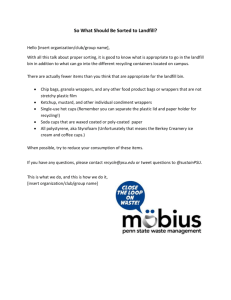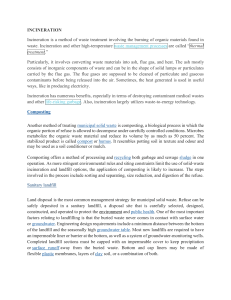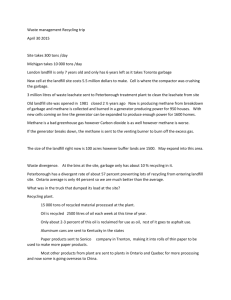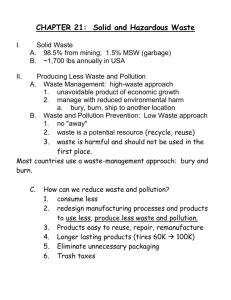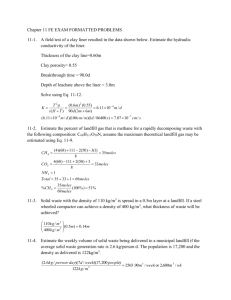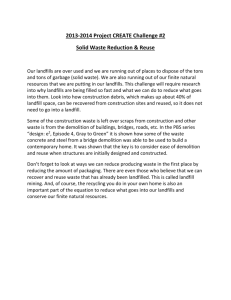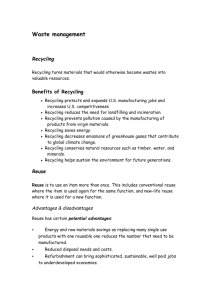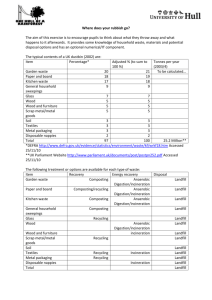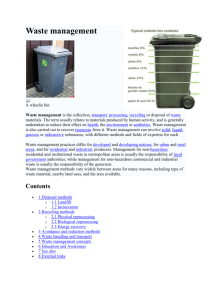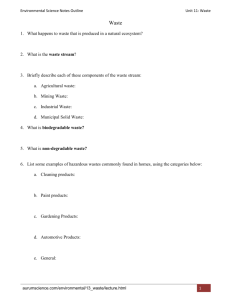CP Chapter 16 - Madeira City Schools
advertisement
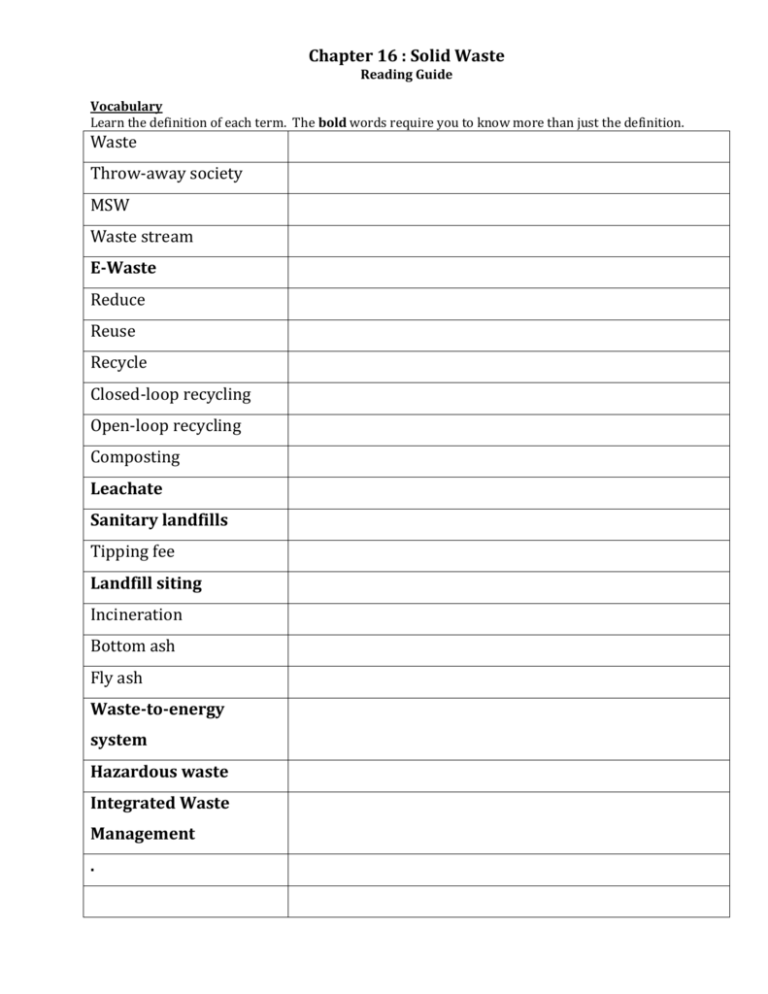
Chapter 16 : Solid Waste Reading Guide Vocabulary Learn the definition of each term. The bold words require you to know more than just the definition. Waste Throw-away society MSW Waste stream E-Waste Reduce Reuse Recycle Closed-loop recycling Open-loop recycling Composting Leachate Sanitary landfills Tipping fee Landfill siting Incineration Bottom ash Fly ash Waste-to-energy system Hazardous waste Integrated Waste Management . National Priorities List Brownfield Life-cycle analysis Paper or Plastic 1. Summarize Main Topics 16.1 Humans generate waste that other organisms cannot use 2. In nature, most waste products become another organism’s inputs. Provide 3 examples of this. How are human different from other species in this respect? 3. Define the following words and provide an example of each from your own life: a. Throw-away society b. Planned Obsolescence c. Single Use item 4. How much trash does the average American produce each day? What factors influence how much waste you produce? 5. . 6. List the four source of MSW and provide 2 examples of waste from each source. 7. What is e-waste? Why is e-waste a serious environmental concern? Why don’t we recycle ewaste more often? 16.2 The three Rs and composting divert materials from the waste stream 8. List the three Rs. Give an example of each. Which one is the most important? Why? 9. What is source reduction? Give 3 specific examples. 10. What is the main difference between closed loop recycling and open loop recycling? 11. Why is recycling the last choice of the Rs? 12. What problems do organic wastes like food waste cause in landfills? 13. skip 16.3 Currently, most solid waste is buried in landfills or incinerated 14. What is the difference between a landfill and a dump (you may need to read further to give a proper answer to this question) 15. Describe the purpose of each of the following landfill parts: a. Leachate collection system b. Liner c. Methane collection pipes d. Cap 16. What types of waste can safely be discarded in a landfill? What types of waste should not go in a landfill and what should we do with them instead? 17. What are suitable uses for a closed landfill? 18. What characteristics should a proper landfill site have? 19. What is incineration? What kind of waste can be incinerated? 20. List some of the environmental concerns of incineration. 21. How can waste be turned into energy? Describe the process. 16.4 Hazardous waste requires special means of disposal 22. What should you do with your household hazardous waste? What happens to it after you dispose of it? 23. Explain how the Superfund law came into effect and what it does. 24. . 16.5 There are newer ways of thinking about solid waste 25. Give some specific examples of the challenges faced by someone trying to do a life cycle analysis. 26. .

